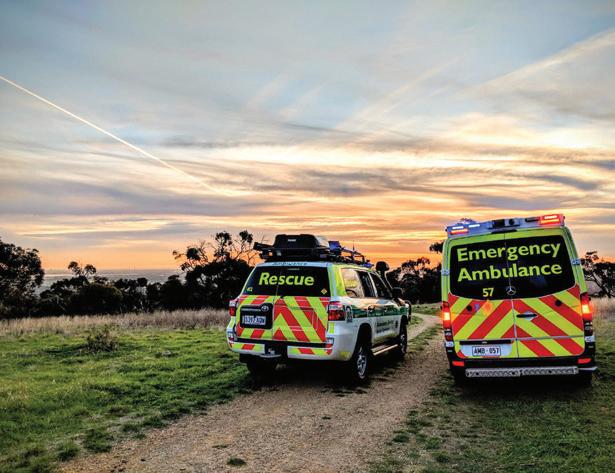
3 minute read
From the Editor
Bushfire victims still face an uphill battle: let’s not forget them
MICHAEL ESPOSITO, EDITOR
Advertisement
With most of the year being dominated by the COVID-19 pandemic, it seems hard to believe that it was just last summer that Australia was gripped by deadly and devastating bushfires.
Not only did they cause widespread destruction, but they highlighted the grim existential threat of climate change.
Climate change, according to the majority of the scientific community, remains the biggest threat to life on Earth, but the COVID-19 pandemic has relegated it to minority status in the minds of many.
The pandemic also shifted the focus away from bushfire victims. It was inspiring to see the Australian community rally around bushfire victims and devote so much time and money to help them recover.
The residents of fire ravaged communities were particularly inspiring in how they helped their neighbours rebuild fences, bury dead animals, provide emergency accommodation and food, and perhaps just as importantly, offer moral support, despite many being personally impacted by the fires themselves.
In this edition, three lawyers who live in the Adelaide Hills open up about their experience of the bushfires, and how they are dealing with the fall-out from the event. They talk about the gradual, exhausting, onerous path to recovery, which for many has been exacerbated by the pandemic.
I commend the practitioners who reflected back on their harrowing experiences to help me tell their story. It would not have been easy but it is important that the plight of victims are not forgotten with everything else going on in the world.
There is every likelihood that the upcoming summer will deliver similarly arid conditions to last year, and we will be largely relying on our emergency services to keep us safe.
Margaret Kaukas writes in the edition about the legislative protections granted to the CFS to ensure they can respond to emergencies without fear of legal repercussions.
As first responders, the CFS often have to make split-second decisions in stressful and life-threatening circumstances, and we cannot have them second-guessing their actions in the middle of a crisis.
It is why they have legal rights to forcibly enter properties, take control of private land, and direct or prohibit people’s movements in times of emergencies.
A common consequence of first responders confronting such situations is the periodic re-living of traumatic events.
The onset of Post-Traumatic Stress Syndrome (PTSD) is a serious risk that emergencies services personnel take when signing up for the job, and they have been pushing for reform to workers compensation legislation that would automatically assume a PTSD diagnosis was work-related. At the time of writing, there is no indication that the Government supports such a reform, but a Bill introduced by SA Best is due to be debated in Parliament this month.
While perhaps not quite as heroic as our brave firefighters, several practitioners nominated to provide pro bono legal assistance to victims of the summer bushfires, following activation of a disaster recovery plan run by the Law Society and Legal Services Commission. Chris Boundy summarises the main legal issues that victims faced and were assisted with by lawyers.
On behalf of the Society, thank you to the practitioners who volunteered their time to help victims, thank you to the emergency services who put their lives on the line to keep people safe, and thank you to all in the community who helped fight the fires and support recovery efforts afterwards. B
IN THIS ISSUE
WORKERS COMPENSATION PUSH The fight for PTSD protections for first responders

SURROGACY REFORM What SA's new surrogacy laws mean

NO TOLERANCE Strategies to address workplace sexual harassment







